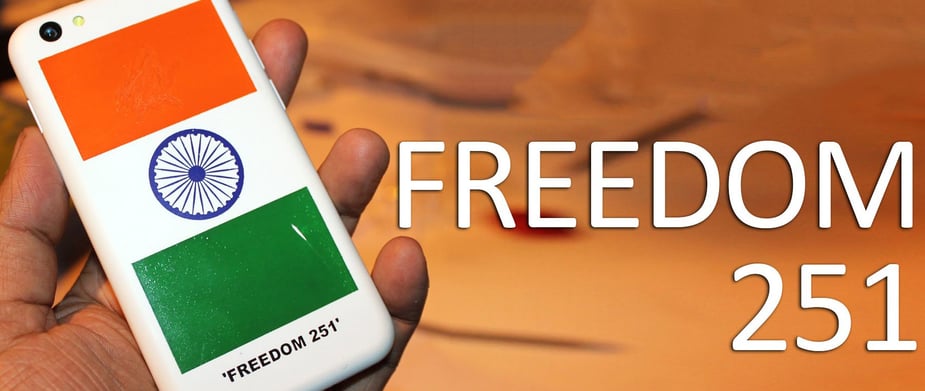Did anyone received Freedom 251?
A small Indian company named Ringing Bells generated significant buzz by announcing a smartphone called "Freedom 251."
10/24/20232 min read


In 2016, a small Indian company named Ringing Bells generated significant buzz by announcing a smartphone called "Freedom 251." The key selling point of this smartphone was its incredibly low price – just 251 Indian Rupees (about $4 USD at the time). This price point made it an attractive proposition for millions of budget-conscious consumers in India.
What Went Wrong:
Unrealistic Pricing: The primary reason for the failure of Freedom 251 was its unrealistic pricing. Many industry experts and observers were highly skeptical about how a smartphone could be manufactured and sold at such a low cost. The company claimed that they would make profits from economies of scale, government incentives, and digital India initiatives, but these claims were met with skepticism.
Quality Concerns: When the first batch of Freedom 251 devices was delivered to customers, it became evident that the quality of the product was poor. The device had subpar hardware and performance, and it was not up to the standards expected from a functional smartphone.
Delivery Issues: Ringing Bells faced significant logistical challenges in delivering the promised number of smartphones to customers. Many pre-ordered customers did not receive their devices, which led to frustration and negative publicity.
Legal and Financial Troubles: The Indian government launched an investigation into the company's business practices. Ringing Bells was accused of misleading advertising and not delivering on its promises. The company's financial instability became evident, and it faced legal troubles as a result.
Lessons Learned:
Realistic Pricing: Setting a price point that is far below the market average should be backed by a feasible and sustainable business model. Unrealistic pricing can create skepticism and ultimately harm a product's reputation.
Quality Matters: Even if a product is inexpensive, it should still meet certain quality standards. Sacrificing quality to achieve a low price can lead to a lack of trust and customer dissatisfaction.
Transparent Communication: Companies should be transparent in their communication with customers and the public. Unrealistic claims can damage a company's credibility.
Compliance and Legal Matters: Companies must operate within the legal framework and fulfill their obligations to customers. Non-compliance with laws and regulations can lead to serious legal and financial consequences.
The Freedom 251 smartphone generated significant attention but ultimately failed due to issues related to unrealistic pricing, quality, and operational challenges. This case serves as a reminder that even in highly price-sensitive markets, delivering value and maintaining trust are essential for the success of a product.
